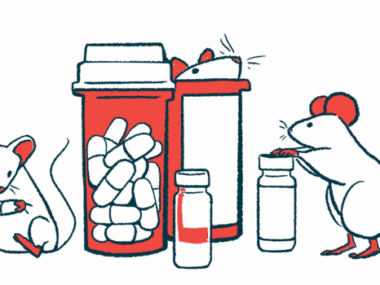The Challenges of Being a Sanfilippo Parent in the Summertime
Written by |

Y’all. I am tired.
My son’s birthday was last week. Will turned 11. This was going to be a column about the bittersweet nature of birthdays when it comes to progressive, terminal diagnoses that have no treatment. About being so thankful for another year while also realizing that it brings you closer to the inevitable. About not measuring milestones in gains but in hoping to see fewer losses as the condition takes your loved one away from you bit by bit. About living a life where birthdays cause conflicting feelings of joy and despair.
But that column didn’t get written.
Why, you ask? Because it’s summer and my son has Sanfilippo syndrome and my life is not my own for the next 50-some days.
Taking care of Will is, in itself, a full-time job. He is a 5-foot tall, 95-pound ball of energy with fast legs and no safety instinct. Due to his condition and its symptoms, he requires constant activity and interaction to keep him stimulated, engaged, strong, and on a consistent sleep schedule. He can never be left alone or unsupervised.
All of his feeding, dressing, grooming, diapering, schedule coordinating, bathing, exercising, transporting, and entertaining fall primarily to me during the summer. As do the dishes, laundry, and cooking. As do the responsibilities of raising a neurotypical 7-year-old who thinks she’s grown. So, yes. Tired.
With the ending of the school year (we did have the benefit of in-person school this year, which was important both for a child who is incapable of online learning — I have the broken laptops and tablets to prove it — and for the respite it provided to us as his 24/7 caregivers) coinciding with my husband’s return to his office after a year of working at home, it has been particularly difficult for me to readapt to the full-time primary caregiving role.
For many parents and caregivers of children with complex conditions, summer “break” reinforces the irony that there are no “breaks” for us.
Due to the complexity of our children’s care, traditional camps or daycares are not an option. Even within respite services, finding people willing to change the diapers of an 11-year-old child who has 11-year-old-sized bowel movements is a challenge. And when you add in that children with limited communication abilities are unable to report any issues to a care worker, you understand the why the meme of Ken Jeong squinting at a minuscule piece of paper with the caption “List of people I trust to babysit my special needs child” was created.
Caregiver burnout is real and many studies address how it negatively impacts the caregivers, giving suggestions on how to mitigate these issues. However, based on our experiences in our state, these suggestions are easier said than done.
Many of the resources designed to ease caregiver burnout are geared toward those caring for the elderly, individuals with prolonged illness, individuals with a lack of mobility, or individuals with mild cognitive needs. Those of us caring for strong and active individuals with medical needs and more significant cognitive issues who also require intense supervision have extremely limited options, if any.
Even in states where respite care services are available, many waitlists are extremely long, and often the respite pay offered is not commensurate with the skills and labor the position requires. This makes it difficult to find suitable candidates. We have been so fortunate, with no family living in our immediate area, to have found a few part-time babysitters and helpers who love our children dearly and are willing to learn the complexities of Will’s care. But this has been based on luck and that luck can run out at any point.
I am not an isolated case. In the United States, one in five Americans are caring for a family member. We need to get serious about supporting caregivers, which means we need to get serious about providing more acknowledgement of and resources for caregivers at the federal, state, and local levels.
The most vicious part of this situation is the conflicting feelings of caregiving. The thing I want most in the world is more time with my son because Sanfilippo limits the amount of time we will have together. I want to be with him, I love every moment with him, but the fact remains that it is hard and exhausting. That’s the plot twist: As much as I am physically, emotionally, and mentally spent in the summer, I love this time with Will. And I hate that the tiredness I feel detracts from the joy of being with my son.
***
Note: Sanfilippo News is strictly a news and information website about the syndrome. It does not provide medical advice, diagnosis, or treatment. This content is not intended to be a substitute for professional medical advice, diagnosis, or treatment. Always seek the advice of your physician or other qualified health provider with any questions you may have regarding a medical condition. Never disregard professional medical advice or delay in seeking it because of something you have read on this website. The opinions expressed in this column are not those of Sanfilippo News or its parent company, Bionews, and are intended to spark discussion about issues pertaining to Sanfilippo syndrome.





Leave a comment
Fill in the required fields to post. Your email address will not be published.